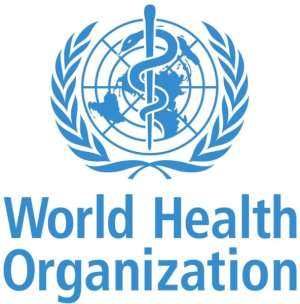
GENEVA, Switzerland, April 27, 2015/African Press Organization (APO)/ -- A drastic shortage in funding is jeopardizing free access to health care services being provided by the World Health Organization and partners in the Central African Republic for horehounds of thousands people.
The WHO Representative to the Central African Republic, Dr Michel Yao, says the humanitarian crisis wracking the country has displaced approximately 200 000 people and put around 1.5 million people at risk. Increased effort and funding, he says, is needed to prevent the crisis in the Central African Republic being “forgotten crisis.”
“This year we are really suffering in terms of funding the WHO operations in the Central African Republic” Dr Yao says. “WHO has a gap of more than US$14million and have received only US$500 000 this year. The needs for the whole humanitarian health sector are even greater, with another almost US$40 million needed by Health Cluster partners, with less than US$1.5 million provided. The health sector is very challenging. The Central African Republic, for example, has among the world's highest child and maternal mortality rates.”
Only 55% of the health facilities in Central African Republic are functioning, and they mostly rely on the support of non-governmental organizations and UN agencies like the WHO, who are collaborating has part of the Health Cluster response. In 2014, Health Cluster partners delivered medical supplies for the treatment of 800 000 patients and provided care for more than 615 000 people in the Central African Republic.
“WHO supports the people in the Central African Republic by providing free access to health care,” Dr Yao explains. “Outside the capital, Bangui, there is a real challenge to provide this care if we don't have funding. If some of the public health facilities do not open, it will make it difficult for people who have moved to Bangui for security and economic reasons to return home. This will mean the overall crisis will not be solved.”
WHO is also filling gaps in disease surveillance, responding to outbreaks and planning health services in coordination with health humanitarian partners.
“One past donor, for example, is not providing funds for the Central African Republic this year as its funding is going towards other crises, like Syria and Yemen,” Dr Yao adds. “I am afraid that we are still a forgotten crisis and this year is even worse than before.”
Dr Yao says the reduced violence in the country means that fewer people are suffering from conflict-related injuries now than one year ago. “But today we have a large displaced population that will soon have no access to healthcare because they cannot pay for it,” Dr Yao says. “Any displacement increases the risk of communicable diseases because people are living in very poor conditions.”
Without a major injection of funding, humanitarian health services will stop delivering conflict-related injuries and they will only be delivering routine care, such as maternal and child health services and treatment for non-communicable diseases like heart disease, diabetes and cancer.




 Tuesday’s downpour destroys ceiling of Circuit Court '8' in Accra
Tuesday’s downpour destroys ceiling of Circuit Court '8' in Accra
 SOEs shouldn't compromise on ethical standards, accountability – Akufo-Addo
SOEs shouldn't compromise on ethical standards, accountability – Akufo-Addo
 Father of 2-year-old boy attacked by dog appeals for financial support
Father of 2-year-old boy attacked by dog appeals for financial support
 Jubilee House National Security Operative allegedly swindles businessman over sa...
Jubilee House National Security Operative allegedly swindles businessman over sa...
 Nobody can order dumsor timetable except Energy Minister – Osafo-Maafo
Nobody can order dumsor timetable except Energy Minister – Osafo-Maafo
 Mahama wishes National Chief Imam as he clock 105 years today
Mahama wishes National Chief Imam as he clock 105 years today
 J.B.Danquah Adu’s murder trial: Case adjourned to April 29
J.B.Danquah Adu’s murder trial: Case adjourned to April 29
 High Court issues arrest warrant for former MASLOC Boss
High Court issues arrest warrant for former MASLOC Boss
 Align academic curriculum with industry needs — Stanbic Bank Ghana CEO advocates
Align academic curriculum with industry needs — Stanbic Bank Ghana CEO advocates
 Election 2024: We'll declare the results and let Ghanaians know we've won - Manh...
Election 2024: We'll declare the results and let Ghanaians know we've won - Manh...
